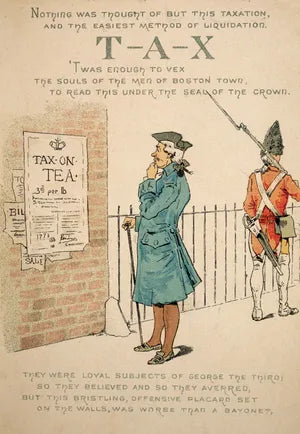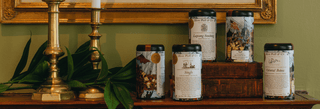The revenue acts enacted by the British government on the American colonies, namely the Townshend Acts of 1767, did not affect the merchants of Charles-Town equally. Taxes were felt more harshly by smaller merchants and planters. As a result, local merchants took the initiative to form the Non-Importation Association at Charles-Town. But the boycott was not united.
Collectively, resentment towards Britain and the revenue acts did not materialize until 1769. Charles-Town, and the broader South Carolina, lacked cohesiveness in the revolt against the tax laws.[1] Artisans and planters were in support of the boycotts, but the merchants were indifferent. A merchant named Christopher Gadsden was the leader of the movement to boycott.

Gadsden was a native of South Carolina who conducted many businesses, including trade as an importer and merchant. His opponents criticized him as an inferior merchant. Gadsden, however, wholeheartedly believed that America’s separation from England was critical and inevitable, and he was willing to use the most influential means possible to bring about their independence[2], taking new action on July 22, 1769 to ignite a passion of rebellion in the lagging Charles-Town merchants.[3]
Gadsden spurred a sudden united front in Charles-Town against Parliament with articles in the South Carolina Gazette with a public incrimination of merchants continuing to import British goods, listing them by name. The Gazette was printed by Peter Timothy, who also encouraged an all-inclusive non-consumption agreement of all British imports until the Townshend Acts were abolished. Furthermore, it was suggested that citizens who did not sign in support of the agreement would be boycotted.[4] But the South Carolina Non-Importation Association still received protests from prominent men in Charleston, such as William Henry Drayton.

William Henry Drayton was among the non-subscribers whose name appeared on the handbills that were distributed throughout Charles-Town as a way to advertise the men who were no longer “friends of America.” Likewise the vast number of names not on the handbills represented all those who did support the non-importation agreement, therefore reassuring those subscribers that they did the right thing.
Drayton was a planter and would later become a very active patriot leader. Drayton openly questioned the legality of the Association and entered into controversies with Gadsden over such point. Their disputes were public, as they debated each other through newspaper writings in the South Carolina Gazette. After their discussions, Drayton proceeded to petition the Association to receive reparations in return for the grievances he endured due to their procedures.
Drayton claimed that he experienced injustices for failing to sign the Resolutions within only one month. As a result, he was unable to sell and trade his goods, “which remained upon his hands at great risk and heavy expense” because “when possible purchasers learned whose property they were they immediately declined any further treaty for the purchase of them.” Unfortunately enough for Drayton, his petition was declined by the legislature and the only substitute for him was that it was published in the Gazette. After such disappointment, Drayton left Charles-Town on January 4, 1770 for Europe. He was a passenger on the ship London, commanded by Captain Alexander Curling, which was taking goods back to England at the order of the Association.[5]
Just three years later, it would be Captain Curling’s ship London that would arrive in the port of Charles-Town carrying duty laden tea for agents of the East India Company stationed there. Just as when the Association forced Captain Curling to return British goods to England in 1770, they would do so again in 1773, but not before Charleston’s first tea party would take place on December 3, 1773.[6]
*Photos from Google Image


